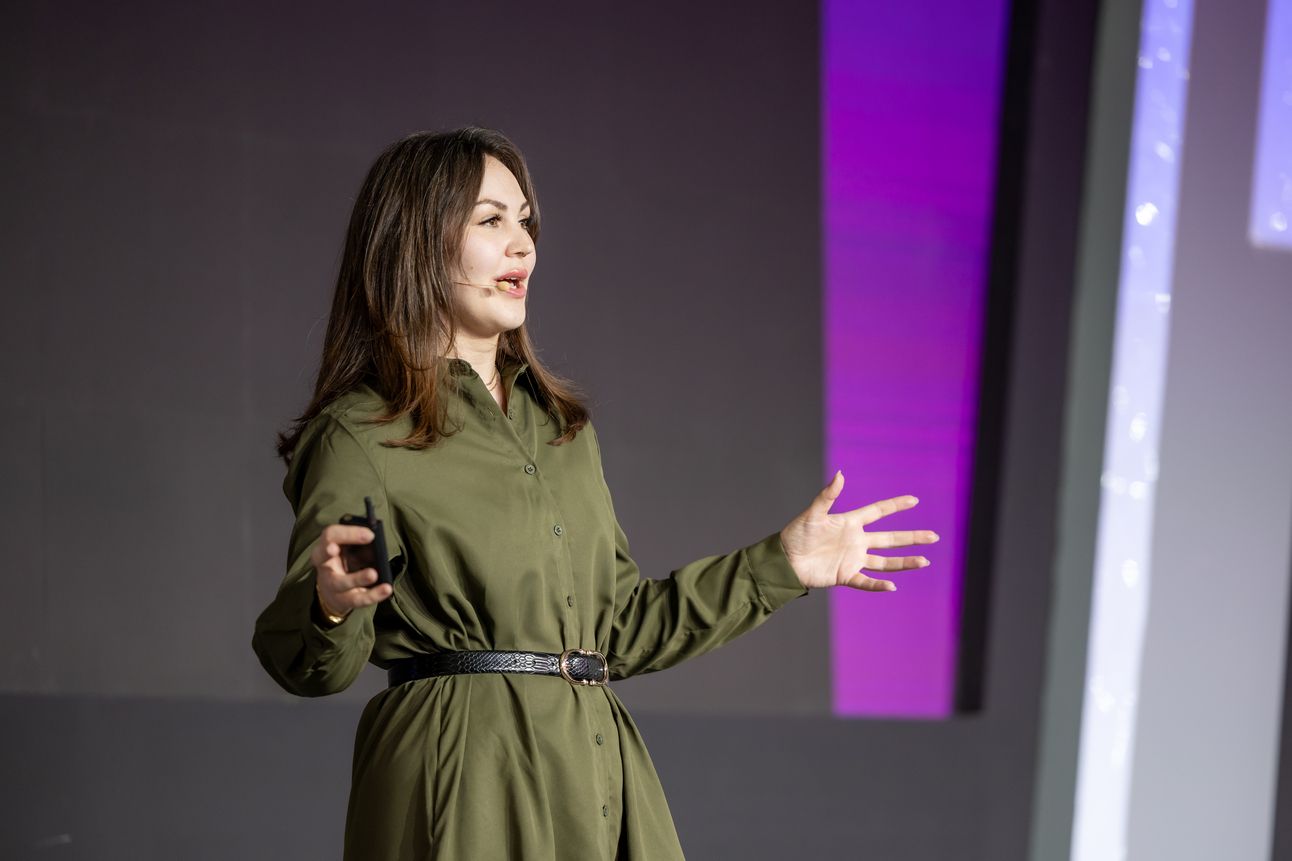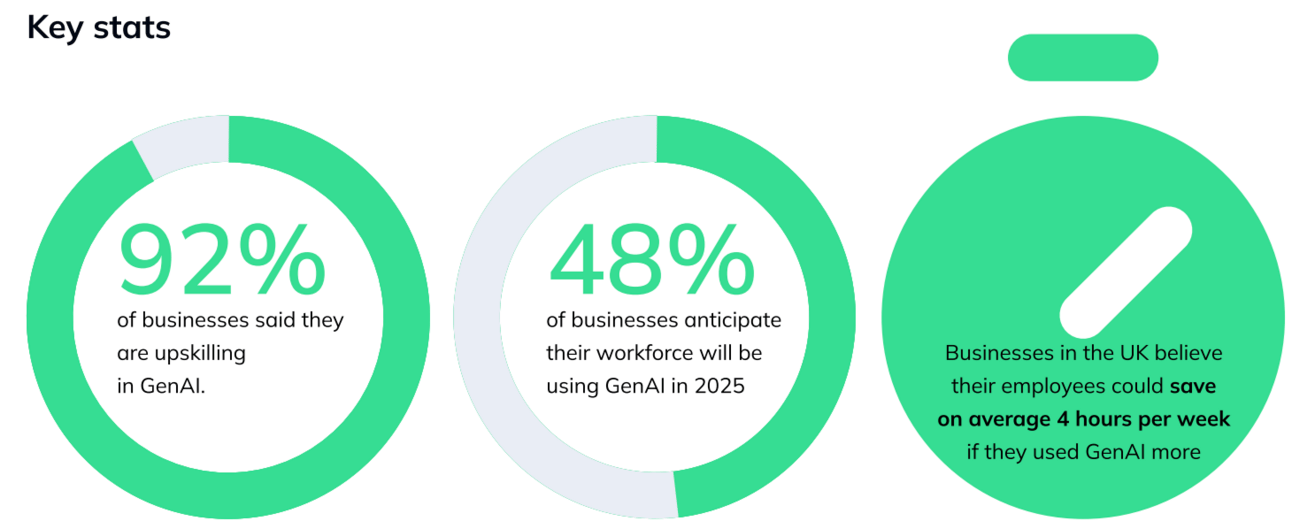Salam aleykum from Muscat!
I’m offline and exploring wadis this weekend in Oman after an incredible (and hectic) week at LEAP in Riyadh. Let me tell you all about it.
In today’s issue
⚡ Lightning List - What I’m reading this week
🐫 LEAP 2025 - If you weren’t one of the 200,000+ attendees, here’s your TLDR
⭐ Community Spotlight - Gigged.AI’s AI Talent Crisis Report
💰 Sponsor - 1440 Media
⚡ Lightning List ⚡
📊 Immigration station. Fragomen’s 2025 worldwide immigration trends report.
🤝 Acquisition alert. Workwell Group acquires Eastridge Workforce Management.
💰 Funding alert. Virtual AI recruiter tech lands $16M Series A.
🇪🇸 Empezamos. Spain drafts legislation to shorten the workweek.
🗾 Hajimemashou. Gig work apps unable to track overtime may break labor laws.
🇧🇷 Começarmos. 68% of Brazilian workers to change jobs in next 12 months.
🇮🇩 Ayo kita mulai. Indonesia ministry rolls out 4-day work week.
🇳🇿 Let’s go. New Zealand eases digital nomad visas.
Saudi Arabia's Audacious Bet on an AI-Powered Future
Finally unpacking an absolutely mind-blowing week at LEAP 2025 in Riyadh, where I had the privilege of speaking on a panel about diversity tech and gave a keynote about change management for scaleups. Let me tell you – what's happening in Saudi Arabia right now is unlike anything I've seen in my years covering workforce transformation.

🚪 Kingdom Opening Its Doors to Innovation
To understand why LEAP 2025 is such a big deal, we need to zoom out for a second. Saudi Arabia has historically been one of the world's most closed societies. Until 2019, tourists couldn't even get visas to visit the Kingdom. Fast forward to today, and Saudi Arabia is making what might be the most ambitious technological transformation attempt in history.
At the heart of this transformation is Vision 2030, the Kingdom's master plan to diversify its economy away from oil (which accounted for approximately 40% of Saudi GDP and 75% of its fiscal revenue). But here's what makes Saudi's approach unique – while most countries let their tech sectors grow organically, Saudi Arabia is taking a decidedly top-down approach, with the government acting as both architect and accelerator of change.
The numbers from LEAP 2025 tell the story:
200,000+ attendees,
1,000+ speakers
1,800+ exhibitors
$14.9 BILLION investment announcement in AI and emerging technologies.
That’s billies… with a B. 💰

LEAP 2025 Main Stage
🇸🇦 The Saudi Tech Paradox
Here's where things get interesting. Saudi Arabia is attempting something that's never been done before: building a world-class tech ecosystem while maintaining strict data sovereignty requirements.
"Saudization" policies state that
data needs to be hosted locally
companies need to maintain significant Saudi ownership and
homegrown talent and employment are key (not shipping in foreigners to do the work)
What makes this especially fascinating is Saudi Arabia's demographic reality. With 63% of its population under 30, the Kingdom has one of the youngest workforces in the world. These digital natives are hungry for opportunity and technological advancement, but they're entering a job market that's still in transition.
🚀 LEAP 2025: Themes and Takeaways
After four days of keynotes, panels, and countless conversations, here are the key trends that emerged:
🤖 AI is Eating the World (But in Arabic)
The push for Arabic language AI models was everywhere at LEAP. From Groq's massive AI inference node to Alibaba Cloud's Qwen LLM, there's a clear recognition that the next frontier in AI is localization.☁ Cloud Goes Local
Google Cloud, Alibaba, and others announced major investments in local data centers. This isn't just about compliance – it's about building the infrastructure for an AI-powered future while keeping data within the Kingdom's borders.🛢 Skills Are the New Oil
Every other conversation at LEAP touched on talent development. With Saudi Arabia aiming to train 100,000 programmers by 2030, the race is on to transform a young workforce into tech talent.
🔮 What This Means for the Future of Work
The implications of Saudi Arabia's tech transformation extend far beyond the Kingdom's borders. Here's what we should all be paying attention to:
🚀 Government as Tech Catalyst
Saudi Arabia's top-down approach to tech development could provide a new model for other countries looking to accelerate their digital transformation.🌏 Local vs. Global Balance
The tension between building local capacity and attracting global talent will shape how companies approach expansion in emerging tech hubs.✨ Youth as Innovation Driver
Saudi Arabia's young workforce could become a testing ground for new approaches to tech education and workforce development.

PIF (not LEAP but same week)
As I left Riyadh, I couldn't help but feel I'd witnessed something historic. Saudi Arabia is making an audacious bet that it can transform itself into a global tech hub in less than a decade.
Whether they succeed or not, their experiment will teach us valuable lessons about the future of work, technology, and society.
⭐ Community Spotlight ⭐
Gigged.AI has been a longstanding leader of tech, data, and AI talent in the UK and this week they released their latest report.
While the report is focused on the UK market, it’s pretty consistent with the facts and figures I’ve seen in both our research with the AI Maturity Index and external studies by IBM, Microsoft, and LinkedIn.
The important takeaway? We don’t have a talent shortage, it’s a skills shortage.
This week’s sponsor is…
Looking for unbiased, fact-based news? Join 1440 today.
Upgrade your news intake with 1440! Dive into a daily newsletter trusted by millions for its comprehensive, 5-minute snapshot of the world's happenings. We navigate through over 100 sources to bring you fact-based news on politics, business, and culture—minus the bias and absolutely free.
Ads help keep Weekly Workforce running. Please support by checking out this week’s sponsor (clicking them often buys me a coffee) or book in your ad.
📚 Term of the Week 📚
Hushed Hybrid noun | WORKPLACE TERM
a workplace situation where managers quietly allow employees to work remotely more than their company's official "return to office" policy permits
Related terms: quiet vacationing, coffee badging
That’s all for now, pals. See ya next week.



